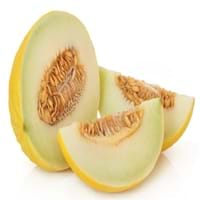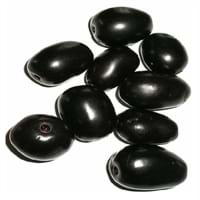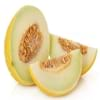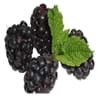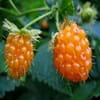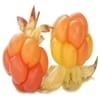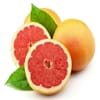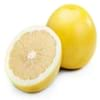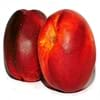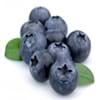Health Benefits
Body hydration, Cancer prevention, Gout treatment, Heart care, Treatment of skin Diseases
Cancer prevention, Heart care, Increase in haemoglobin, Regulates Blood Sugar, Ulcer prevention
General Benefits
Body hydration, Controls blood pressure, Digestive aid, Eye care, Helps in weight loss, Improves eye vision, Maintains healthy cholesterol level, Strengthens bones
Boosts immune system, Digestive aid, Fights against infections, Strengthens bones
Skin Benefits
Anti-aging benefits, Brightens and lightens complexion, Hydrates skin, Reduces wrinkles, Treatment of dark spots
Brightens and lightens complexion, Skin cleansing, Skin rejuvenation, Treatment of acne, Treatment of dark spots
Hair Benefits
Prevents hair loss, Promotes longer and healthier hair, Protects hair
Promotes longer and healthier hair, Protects hair
Allergy Symptoms
Abdominal cramps, Breathing difficulty, Coughing, Diarrhea, Hives, Hoarseness, Itching in eyes, Itching of mouth, Itching sensation in throat, Nasal congestion, Nausea, Skin rash, Wheezing
Abdominal pains, NA
Side Effects
Allergic reaction
Decrease in blood sugar levels, Allergic reaction, Throat irritation, Throat swelling, Possibly unsafe during pregnancy
Best Time to Eat
As a snack in the late afternoon, Don't consume at night and before bed, Eat the fresh ones, avoid mixing with any other foods, don't eat after meal., Morning time (before lunch)
As a snack in the late afternoon, Don't consume at night and before bed, Eat the fresh ones, avoid mixing with any other foods, don't eat after meal., Morning time (before lunch), Strictly avoid empty stomach
Vitamin B5 (Pantothenic Acid)
Not Available
Vitamin B9 (Folic acid)
Not Available
Vitamin C (Ascorbic Acid)
Vitamin E (Tocopherole)
Not Available
Vitamin K (Phyllochinone)
Not Available
Lutein+Zeaxanthin
Not Available
Phytosterol
Not Available
Calories in Fresh Fruit with Peel
Not Available
Calories in Fresh Fruit without Peel
Not Available
Calories in Frozen Form
Not Available
Calories in Dried Form
Not Available
Calories in Canned Form
Not Available
Not Available
Type
Melon
Tree fruit, Tropical
Season
All seasons
Monsoon, Summer
Varieties
Green Flesh, Yellow Rind and Orange Flesh
Ram Jarnun and Paras
Color
Green, Yellow
Black, Magenta, Purple
Inside Color
Light Green
Purple
Taste
Sweet
Astringent, Sweet
Origin
France
Bangladesh, India, Indonesia, Malaysia, Nepal, Pakistan, Philippines, Sri Lanka
Grows on
Not Available
Trees
Soil Type
Sandy loam, Well-drained
Loam, Sandy loam, Well-drained
Climatic Conditions
Warm
Humid, Rainfall
Facts about
- The average weight of honeydew melon is 6 pounds.
- 90% of a honeydew is water.
- In middle east countries, dried and roasted honeydew seeds are consumed as snacks.
- Honeydew melons can be 15-22 mm long.
- Wood of jambul tree is water-resistant wood & is used in railroads and to implement engines in the well.
- In Indian mythology, it is said that Jambul fruit was revered by Buddha.
- Jambul has a huge importance in Ayurveda.
Other Countries
Brazil, Egypt, India, Iran, Mexico, Morocco, Spain, Turkey, United States of America
Bangladesh, Indonesia, Malaysia, Nepal, Pakistan, Philippines, Sri Lanka
Top Importer
Not Available
Not Available
Top Exporter
Not Available
India
Botanical Name
Cucumis melo
Syzygium cumini
Synonym
Not Available
Eugenia cumini
Subkingdom
Tracheobionta
Tracheobionta
Division
Magnoliophyta
Magnoliophyta
Class
Magnoliopsida
Magnoliopsida
Subclass
Dillenhidae
Rosidae
Order
Cucurbitales
Myrtales
Family
Cucurbitaceae
Myrtaceae
Species
C. melo
S. cumini
Generic Group
Gourd
Not Available
Compare Honeydew and Jambul
It is important compare Honeydew and Jambul as both the fruits have a different nutritional value. Their comparison can be done on the basis of their vitamin and mineral content, calories, benefits as well as characteristics, making it easier for us to choose the best fruit for our diet. Their general health benefits are as follows:
Honeydew Benefits: body hydration, controls blood pressure, digestive aid, eye care, helps in weight loss, improves eye vision, maintains healthy cholesterol level and strengthens bones.
Jambul Benefits: boosts immune system, digestive aid, fights against infections and strengthens bones.
Fruits are also used as a remedy for various hair problems. The hair benefits of Honeydew are: prevents hair loss, promotes longer and healthier hair and protects hair and hair benefits of Jambul are: promotes longer and healthier hair and protects hair. Some fruits are known to cause allergic reactions. The allergy symptoms of first fruit are: abdominal cramps, breathing difficulty, coughing, diarrhea, hives, hoarseness, itching in eyes, itching of mouth, itching sensation in throat, nasal congestion, nausea, skin rash and wheezing and the symptoms of second fruit are: abdominal pains and na. Get sorted Honeydew vs Jambul comparison with the help of fruit comparison tool by fruitvs.com.
